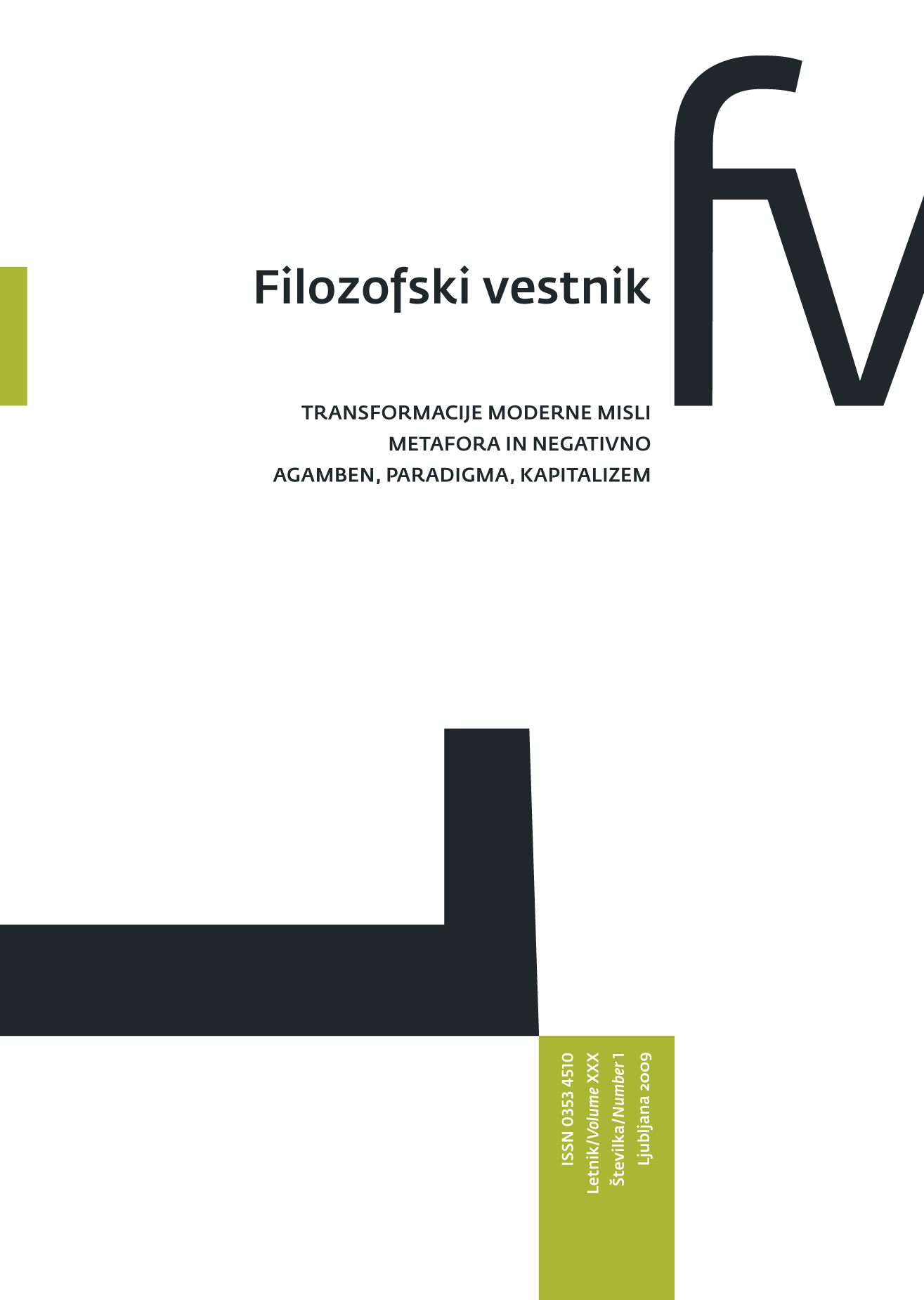Foucault med ugodjem in željo
Ključne besede:
Foucault, kriza, deleuze, ugodje, užitek, željaPovzetek
V prispevku izhajamo iz dveh konceptov, ugodja in želje, ki ju je ob analizi in kritiki Michela Foucaulta predlagal njegov najlucidnejši kritik Gilles Deleuze. Foucault je na to kritiko odgovoril na to Deleuzovo kritiko, pri čemer je hitel dokazovati, da njegov koncept ugodja nima nič z običajnim pojmovanjem ugodja ali pa s pojmovanjem, ki mu ga očita Deleuze. Vprašanje, ki nas zanima v prispevku, je, v čem sestoji to Foucaultovo pojmovanje ugodja. Izkaže se, da se Foucaultovo pojmovanje le navidez sklada s tistimi vprašanji, ki zanimajo Deleuza – čeprav slednji ugodje razglasi za gnilo idejo, čeprav ga zanima predvsem vprašanje, kako ohraniti pozitivnost, pa je Foucault ravno v točki, kjer je videti Deleuzu najbližje, od njega hkrati tudi najdlje. Deleuzova želja je namreč v temelju nekaj »iztirjenega«, nekaj, kar je mogoče misliti le na prelomu Moderne. Drugače rečeno, Foucaultov teoretski projekt zapade v krizo, ki jo diagnosticira ravno Deleuze, ravno zato, ker sam nima in noče imeti teorije Krize.Prenosi
Podatki o prenosih še niso na voljo.
Prenosi
Objavljeno
2016-03-08
Kako citirati
Klepec, P. (2016). Foucault med ugodjem in željo. Filozofski Vestnik, 30(1). Pridobljeno od https://ojs.zrc-sazu.si/filozofski-vestnik/article/view/4446
Številka
Rubrike
Transformacije moderne misli
Licenca
Avtorji jamčijo, da je delo njihova avtorska stvaritev, da v njem niso kršene avtorske pravice tretjih oseb ali kake druge pravice. V primeru zahtevkov tretjih oseb se avtorji zavezujejo, da bodo varovali interese založnika ter da bodo povrnili morebitno škodo.
Podrobneje v rubriki: Prispevki





